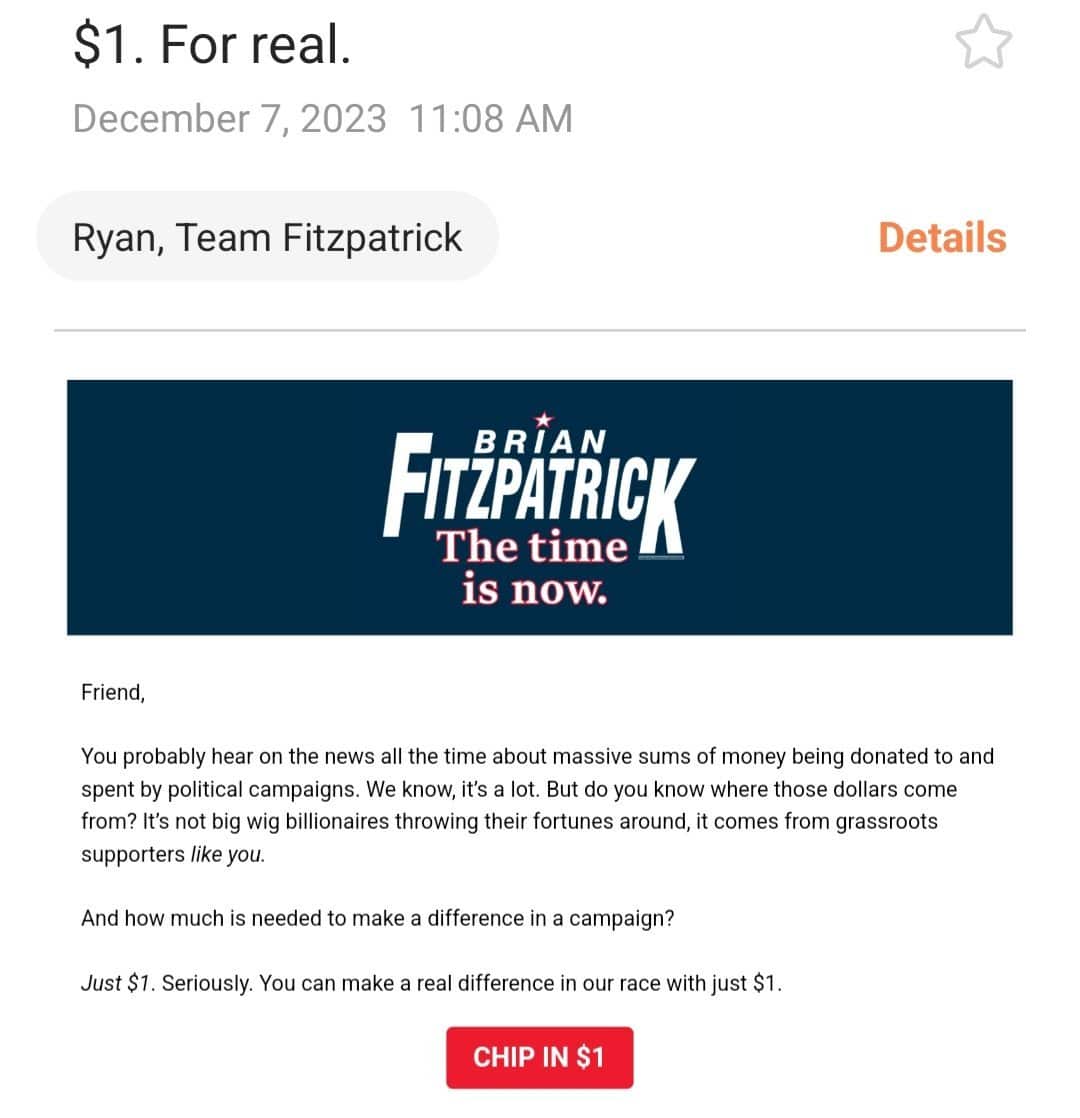Republican Congressman Brian Fitzpatrick posted a fundraising ask on social media last month for just $1. What difference can a single dollar make? You’d be surprised.
Utilizing data from the FEC and Open Secrets, Indivisible Bucks County pointed out that Fitzpatrick had received only 0.6% – the lowest amount of small dollar donations among all candidates running for the PA01 congressional seat.
The lack of small donor contributions seemingly indicates a scarcity of grassroots support and enthusiasm, and that Fitzpatrick’s message is not resonating within a diverse group of people within the community. It could also indicate that the financial fuel needed to drive his campaign will be sourced from corporate interests, other Republican politicians, and those of wealthier financial means not necessarily with direct ties to Bucks County.
In September, Fitzpatrick sent a letter to constituents crowing about his far-right positions against abortion, against the LGBTQ+ community, making it more difficult to vote along with the hypothetical “weaponization of the federal government.”
The messaging can hardly be viewed as moderate or bi-partisan, two of Fitzpatrick’s most treasured campaign marketing gimmicks. If the letter was intended to galvanize support and small donor contributions, it may have missed its mark.
Adding insult to injury, the correspondence was mailed utilizing a practice known as “franking,” which is a privilege that allows elected officials to send mail without postage at taxpayer expense.
Since 2010, and primarily due to the enactment of Citizens United, the campaign funding landscape has undergone significant changes. Another influential factor reshaping political funding is the significant impact of social media on the public and its capacity to seamlessly handle small dollar contributions. Despite being at opposite ends of the fundraising spectrum, Super PACs and small donor contributions do have something in common. In both instances the source of funding may be concealed. Super PACs must identify contributors but not necessarily the original donors who provided funds to the contributor. Likewise, the identity of those making contributions of $200 or less may be shrouded. Neither source of funding should be considered inconsequential.
READ: Rep. Brian Fitzpatrick Votes To Severely Limit Abortion Access To Members of the Military
“Democrat John Fetterman has relied on a steady stream of small-dollar donations,” wrote the Philadelphia Inquirer in October 2022. “While raising $48.5 million, nearly half has come in increments of $50 or less.”
In 2024, two ingredients of a successful political campaign appear to be a constituent focused candidate along with plentiful small dollar donations.
Fitzpatrick’s re-election campaign fails on both counts.






